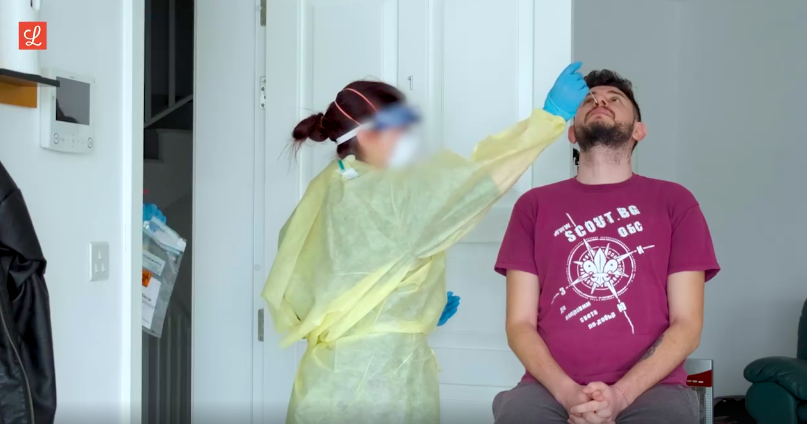Malta’s COVID-19 Patients Are Now Automatically Being Labelled As Recovered After 15 Days Without A Swab Test

A vast majority of Malta’s COVID-19 patients are being automatically considered as recovered 15 days after they initially test positive. This means no final swab test is being administered before the previously-infected person is allowed to leave isolation… provided they meet three requirements.
Rumours of the new system started circulating earlier last week when people began noting a higher number of daily recoveries being announced by Saħħa.
Now, however, people who had recently contracted the virus have opened up about their experience.
“My official discharge letter just said I could leave my home two weeks after I tested positive,” one person told Lovin Malta. “I wasn’t sure what to do and I ended up booking a swab test myself because even though I was allowed to leave, I didn’t want to risk still being infectious. Especially since I was mostly asymptomatic for the whole thing so couldn’t really tell when I actually would’ve tested negative.”
The official discharge letter being sent states that people who test positive for COVID-19 are allowed to leave quarantine “strictly subject to the fulfilment” of these three conditions:
- Everyone in the household (including the patient) does not have any symptoms, and has remained this way for at least three days prior to the eve of the final day.
- None of the residents in the household has tested positive to COVID-19 throughout the quarantine period.
- No one has joined the household within the quarantine period and tested positive for COVID-19.
“But without an actual test, how can they really be sure?” a previous COVID-19 patient who was told she could leave her home some days ago told Lovin Malta. “Are they just hoping everyone follows the same pattern? And if someone doesn’t, are they just let loose to continue infecting people all over again?”
“Basically, you’re considered recovered by default after 15 days… unless you die,” another person who recently went through the experience said, putting it more bluntly.
A vast majority of COVID-19 patients recover within the stipulated two-week period, but as with varying levels of symptoms, the true recovery time isn’t always the same. Many won’t even need two weeks to recover… but it’s not unheard of for patients to take even longer.
Having said that, should people actually be concerned about the new procedure, or does the science back this technically more efficient system?

Lovin Malta reached out to the Health Ministry on the matter, and a spokesperson clarified that the new, ECDC-issued procedure has been around since the second week of February.
“The protocol for release from isolation under public health grounds for persons with mild to moderate cases of COVID-19 has recently been amended and in so doing, removing the requirement for a negative swab at the end of the isolation period,” the ministry confirmed.
“This began to be implemented in the second week of February. The protocol has been amended further to evidence and guidance on release from isolation issued by ECDC in the last quarter of 2020, after having given more time for the evidence to be substantiated.”
“While the exact duration of infectivity of COVID-19 patients is not known with certainty, numerous studies show that most transmission happens around the onset of symptoms, with the virus also detected two days before the onset of symptoms.”
“The body of evidence has strengthened that in non-severe cases, the isolation of the virus can be done successfully for around 10 days from the onset of symptoms,” the statement continues. “After this time, the body’s immune system would have fought against the virus, and while the presence of viral fragments may be detected, such fragments are not infectious.”
“The protocol for severe cases of COVID-19 requiring hospitalisation is however different,” the spokesperson finished. “While some other countries may have followed this procedure already, the public health authorities thought it best to keep to the previous protocol until further evidence was available.”
Do you agree with this new system?